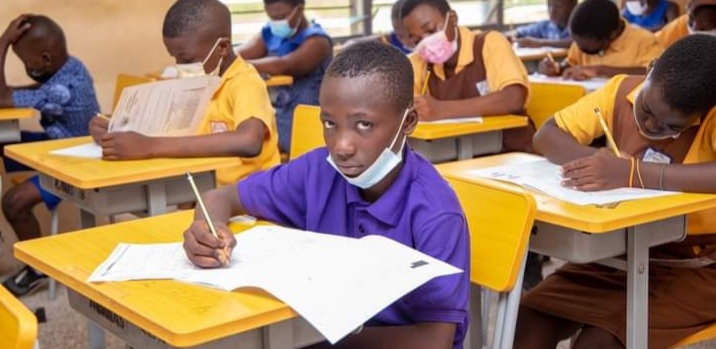Dedicate Fund to Pre-tertiary Education – GNAT to New Government

THE Ghana National Association of Teachers (GNAT) is pushing for the state to urgently set up a system of dedicated funding for senior high, junior high and basic schools, also known as pre-tertiary education.
The largest pre-tertiary grouping of teachers said a dedicated source of fundingwould not only address the challenges bedevilling the
free senior high school (Free SHS) policy, but would also cure the dwindling quality at
the junior high and basic school levels.
“This call is in the national interest for the
establishment of the fund which should be a matter of priority for the new government because the consequences of inadequate
funding for pre-tertiary education could be dire if there is no such dedicated funding to solve the problems and provide quality education to Ghanaian children”.
In an exclusive interview with the Daily Graphic, the General Secretary of GNAT, Thomas Tanko Musah, said GNAT was ready to play a key role in a national conversation to identify and codify how pre-tertiary education should be adequately funded to improve the quality and make public schools,
which remain the first and only choice for majority of Ghanaians, a competitive alternative to private schools.
Suggested sources
To set the ball rolling, GNAT suggested the nation could consider a one percentage increase in the Value Added Tax (VAT), the efficient collection of property rate and setting part aside to fund pre-tertiary
education; a dedicated percentage of oil revenue and a look towards development partners and corporate organisations.
Mr Musah said parent-teacher associations should be revived to ensure that they contributed to funding that level of education, while incentives could be provided to stimulate the involvement of old
students’ associations, alumni groups and missions, among others, to contribute their quota.
“Where we are now, it looks like the attention is now on the senior high school at the detriment and disadvantage of the kindergarten, primary and junior high schools, which is not the way to go,” the
General Secretary of GNAT said.
“When teachers go to school, the things that must help them for teaching and learning to take place are not there. So, you see teaching
taking place, but learning is not. Learning is said to have taken place when there is a change in behaviour,” Mr Musah explained.
The GNAT General Secretary further explained that education was for the public good and the only weapon that could be used to break the poverty cycle; therefore, the urgent need for a dedicated funding to ensure that children at the pre-tertiary level
had access to quality education.
“All the great men came from poor backgrounds and if you ask them, they
will tell you, but for education, and looking at it carefully, once one person is able to break through, successivegenerations will follow in that path,” he said.
According to the GNAT leadership, the way funding of pre-tertiary was proceeding was making the private sector alternatives the preferred option, saying if the trend persisted
“education then will go to the highest bidder. If you can pay, you get the quality. If you cannot pay, you don’t get it”.
Mr Musah cited some of the ramifications of inadequate pre- tertiary education funding to include government’s indebtedness to the
West African Examinations Council (WAEC) that had impeded marking of the 2024 West African Senior School Certificate Examination (WASSCE) for School Candidates.
The list also included the capitation grant, which was supposed to be used for the running of the basic schools. However, it was not only paltry but it had always been in arrears for at least two years, giving room for inflation to erode its value. “Inflation has wiped out everything.








